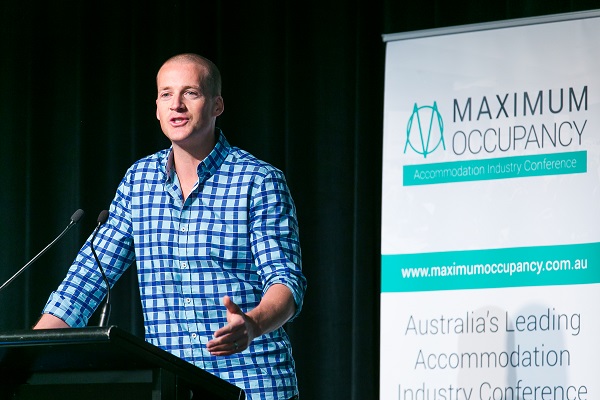
Will landmark ruling change review culture?
The Federal Court has ordered Google to reveal the identity of a reviewer who posted negative comments about a Melbourne business, in a ruling set to have widespread repercussions for the entire online review system.
The Court backed the argument of dentist Matthew Kabbabe, who runs the teeth whitening service Asprodontics, that Google should have to reveal the identity of the reviewer so Kabbabe can take legal action.
The review came from a person identified as CBsm 23, the only non-five-star feedback about the business when it appeared on Google three months ago, and Kabbabe claims it has affected his life and business.
The dentist’s lawyer, Mark Stanarevic argued Google has a duty of care to businesses in allowing reviews to be published.
He said: “A bad review can shut down a business these days because most people live and breathe online.”
Google was ordered to hand over information that identified CBsm 23, including phone numbers, names, location metadata and IP addresses.
AccomNews published a story on Monday about a Gold Coast accom operator battling with Booking.com to have “unjust” reviews removed, prompting a flood of responses from hoteliers and moteliers with similar complaints.
Now OTAs and the wider online community may be forced to rethink their policies on reviews, with last week’s landmark decision signifying online platforms are not immune to the repercussions of user comments.
Rob Nicholls, associate professor at the UNSW Business School, told Business Insider Australia, “The dentist had no way of being able to serve court papers on that person directly because they were shielded by Google. So the court said to Google, you have to get rid of that shield so that the normal process can continue.
“Potentially Google and others might have to think a bit harder about what reviews they allow to be published if they can see that on their face they look as if they’re defamatory.”
Following Monday’s story, accom operators shared their horror stories of OTA reviews left by guests who did not stay with them at all, made false allegations about staff and talked about a rape unrelated to the property.
One AccomNews reader said of Booking.com (BDC): “BDC and others like them need to fix their ‘guidelines’ urgently so they have something telling them how to behave properly in this business area.
“TripAdvisor will not allow an alleged guest to publish a 2nd review about a particular motel until 3 months has elapsed, for just the reason we see here. Had many battles with BDC and other OTAs with some success but usually none.
“Even if they delete it, it takes so long the social media damage is well and truly done and the score damaged too. The Last delete request involved a review criticizing our ‘restaurant’ but we don’t have one…
“Despite the fact we don’t have a restaurant, and OTAs clearly know this by looking at the extensive property information they force us to list on their website they refused to delete it.”
Booking.com points out operators are given a right of reply to any review and says: “We never alter or edit these reviews in any way, as they are a reflection of the individual guest experience at each and every place to stay on Booking.com.”
But as recent legal rulings in Australia have seen the pendulum swing back in favour of reviewees, accom operators are seeking a change in attitude towards comments made online.
One reader said of bad reviews: “Would love to see the bodies who regulate and aid the hotel industry step in here and get a meeting with TA (Tripadvisor) and Booking.com to discuss this and see if something can be done.”
And another said: “Booking.com needs to have a serious look at their guidelines and take responsibility for the damage they are doing to small businesses.”
This week’s Federal Court ruling follows a NSW Supreme Court award in July last year of more than $500,000 in damages to a Sydney doctor following a negative review posted on Google.
Cynthia Imisides claimed she did not have a cheek procedure performed by plastic surgeon Kourosh Tavakoli and posted a negative review about the practice, but the court judged Cynthia’s claims were untrue and ordered her to pay damages as well as Tavakoli’s legal fees.
Following the review, traffic to Tavakoli’s site dropped by more than 23 percent in less than a week. When Tavakoli became aware of the publication of the review, he said he became “extremely distressed and embarrassed”.
“The allegations contained in the publication are extremely serious and go to the heart of the reputation of [Tavakoli] in his profession,” the surgeon’s lawyer argued.
This decision came soon after a NSW Supreme Court ruling that found media organisations could be sued for defamation for public comments made on their Facebook pages. The judge found The Sydney Morning Herald, The Australian, the Centralian Advocate, Sky News Australia and The Bolt Report were liable for allegedly defamatory comments made about an individual by third parties.

AccomNews is not affiliated with any government agency, body or political party. We are an independently owned, family-operated magazine.








About Time. We the Hoteliers and Moteliers are these sites ‘bread and butter’ lets face it, without us, they would have NO BUSINESS.
I have had a big problem with the big E site, who has a review about us, and the reviewer didn’t even stay here. In fact I tried to help him out, for which I incurred a Relocation account from the big E site. This has been ongoing since 28 December..
It is a joke folks.
Can anyone advise have you every been able to ring these sites and get assistance ?